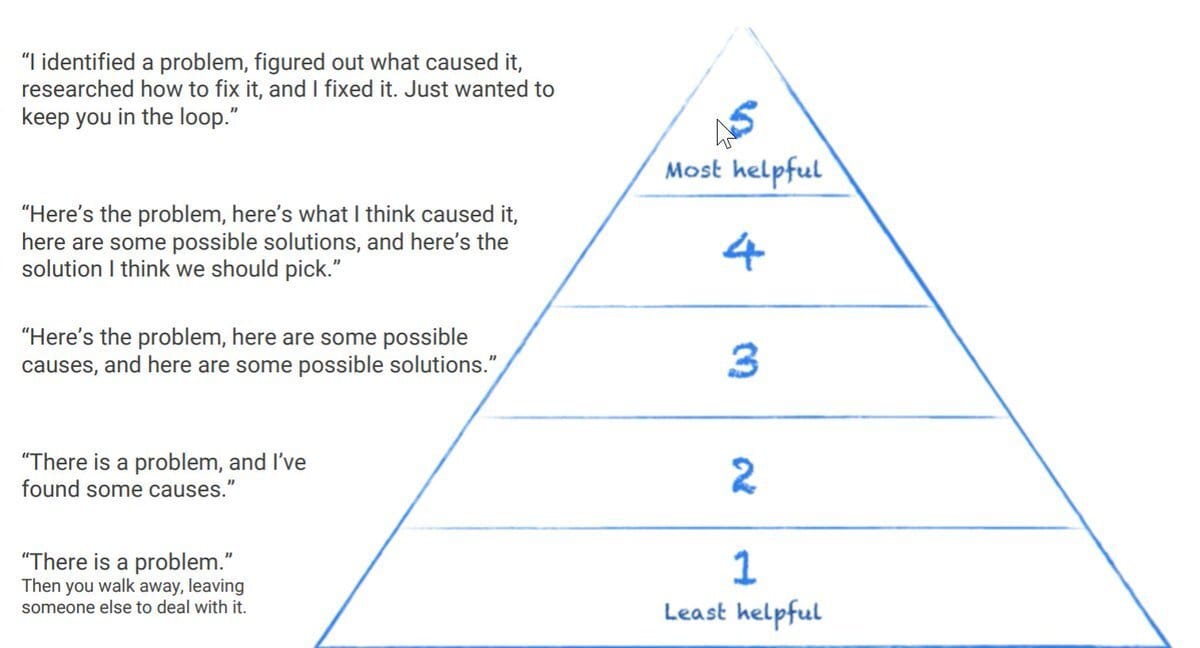Hey y’all — here’s today at a glance:
Opportunity → Lead Scoring Tool
Framework → The 5 Levels Of Work
Tool → MongoDB
Trend → AI Articles
Quote → Don’t Be Afraid To Be Wrong
PS — Become a member to get access to my founder membership including an engaged community, fundraising support, fireside chats and more.

Most founders spend half their week on tasks someone else could do. HireHarbour connects you with exceptional remote Executive Assistants trained at firms like McKinsey and BCG so you can focus on growth.
Their clients save up to 40% versus local hires and reclaim dozens of hours each week.
Want to hire a McKinsey trained remote EA just like our recent client did?
Book a quick chat with HireHarbour’s founder Ash to explore how a world class EA can elevate your team.
Want to stop seeing ads? Upgrade now. Want to get in front of 75,000+ founders? Go here.

🔗 Houck’s Picks
My favorite finds of the week.
Fundraising
Growth
ICYMI

💡 Opportunity: Lead Scoring Tool
With more data at our fingertips than ever, and LLMs to process it, the way we score leads likely needs an update.
Sales teams get huge lead lists, but scoring them just based on their job title, location, etc. seems overly simplistic.
At this point, most high-powered sales teams have unique datapoints and heuristics they consider when mentally scoring leads, but some of this happens during their research on the lead rather than actually being brought into the score their CRM is showing them.
Why not have an LLM ingest all of that additional contextual data and incorporate it into a more intelligent score, so sales teams can save time and get in front of more leads (rather than researching them)?

Spotted on Ideabrowser
🧠 Framework: The 5 Levels Of Work
Founders spend money on employee salaries to solve more problems.
Some of those solutions are meant to be growth-oriented and revenue generating, others are meant to improve the product, retain customers, or even solve interpersonal team dynamics that aren’t working.
But the key part of that is solving problems in the first place.
There’s a great post from Andrej Karpathy on why agency is more important than intelligence, and I recommend founders apply that type of thinking to their hires.
A good way to measure for it is this framework:
Which type of employees are you hiring? What level of problem-solver are they?

With that said, don’t let this mindset of the best employees being fully autonomous blind you.
It’s easy to see this and think that it means you don’t need to be in the details yourself on problems.
Wrong. That’s a path to getting surprised when big problems pop up out of nowhere, that people tried to solve themselves and failed.
Just because you hire high agency people doesn’t excuse you from being aware of what’s going on with your business.
🛠 Tool: MongoDB
Building the next big thing? MongoDB for Startups gives you the tools and support to accelerate your growth:
Exclusive credits: Get MongoDB Atlas credits to jumpstart your development
Expert support: Access technical guidance from MongoDB's startup team
Proven platform: Join thousands of startups shipping faster with the database trusted by innovators worldwide
Built for scale: Whether you're building AI applications or mobile apps, Atlas provides the flexibility and performance you need
📈 Trend: AI Articles
It’s happening.
More than 50% of the articles being published online seem to be created by AI now.

Things have flipped, and we’re never going back.
Here’s what’s going to happen next:
First, the majority of content published each day is created by AI.
Next, overall the majority of content on the internet (published ever) will have been created by AI (cue the dead internet theory vibes).
As this is happening, LLMs will be scraping, ingesting, and learning from this AI content, creating a loop.
What happens after that is unclear. You’re effectively training AI slop generators on… AI slop. As Trent Reznor would say, it’s a copy of a copy of a copy of a copy of a…
At a minimum, it will create the need for human-verified spaces online. It will probably be one of the next major use cases for blockchain (Worldcoin is ahead on this, even if the eye-scanning feels odd).
At that point, questions emerge:
If humans do end up prefering human-verified spaces, what is the purpose of non-human-verified spaces online?
What happens to the accuracy of LLMs as they begin to be trained, increasingly, on their own outputs (presumably including hallucinations)?
Gonna be a wild few years with this one.
💬 Quote: Don’t Be Afraid To Be Wrong
How many times are you wrong every week? Or every day?
Founders should track their wrong decisions.
Being sure that you’re wrong happens sooner than being sure you’re right, so you can learn more (and faster) by tracking them.
Don’t shy away from admitting you’re wrong. Embrace and actually learn from it.

How We Can Help
Become a member to get full access to our case study library, private founder community, and more.
We can also help your startup in a few other ways:
Content Creation
Let my team and I ghostwrite for your newsletter, X, or LinkedIn.
Audience Building
Grow your audience + generate leads with my growth service.
Fundraising
Share your round with hundreds of investors in my personal network.
Advising
I’ll help solve a specific challenge you’re facing with your startup.
Advertise in this newsletter to get in front of 75,000+ founders.

“*” indicates sponsored content.

